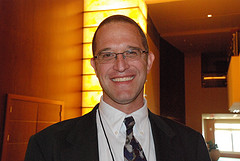Dec 21, 2011 Comments Off on Overindulging in Innovation
Overindulging in Innovation
Note: This was originally posted to Aquent’s Talent Blog back in March of 2007. I’m reprinting it here because I referenced it here. Also, I refer to Scott’s book as “The MYTH of Innovation,” though the actual title reads “MythS,” which is actually saying something quite different! – Matt
At a recent marketing conference, the catchphrase was “innovation,” as in, “We’ve entered the age of the ‘innovation economy,'” or, “Today, innovation is the key to differentiation.” Given the premium placed on innovation, a colleague who attended this conference wondered aloud how job seekers could best communicate their ability to innovate.
As a way of answering that question, I’ll direct you to a recent post on innovation hype I found on Scott Berkun’s blog. Berkun has book on the myth of innovation coming out in May, so you’ll have to wait until then to get the whole story, but he states his basic perspective fairly clearly in the aforementioned post: No matter how ubiquitous the invocation of innovation, actual innovations are fairly rare, and, as far as success in business is concerned, rarely necessary.
From the job seeker’s standpoint, if the job you are applying for requires that you demonstrate your ability to innovate, the only real way to do that is to point to innovations you have actually brought into being. Keeping Berkun’s words in mind, however, be prepared to exercise caution and refrain from portraying drastic improvements or significant changes as something they are not, namely, innovations.
Of course you could also follow Berkun’s advice and, when a prospective employer says, “Tell me about a situation where you introduced a real innovation,” simply ask, “What do you mean by that?”


